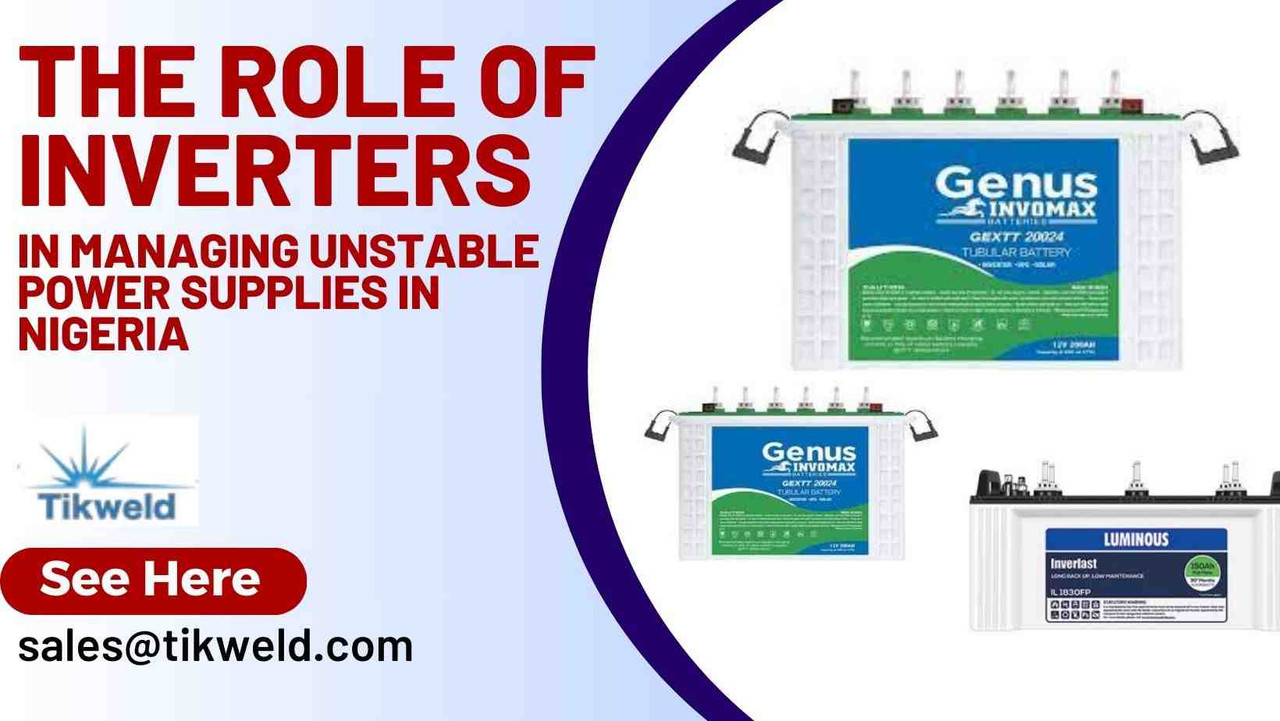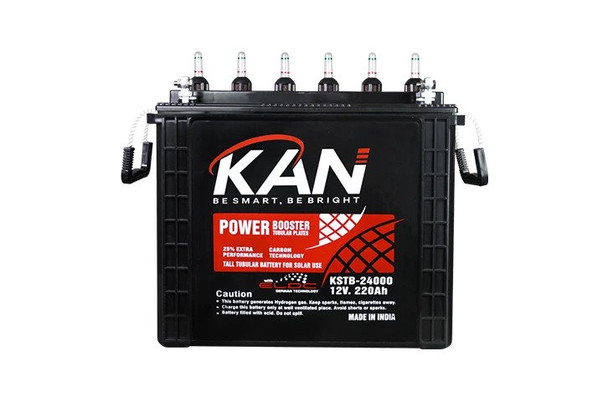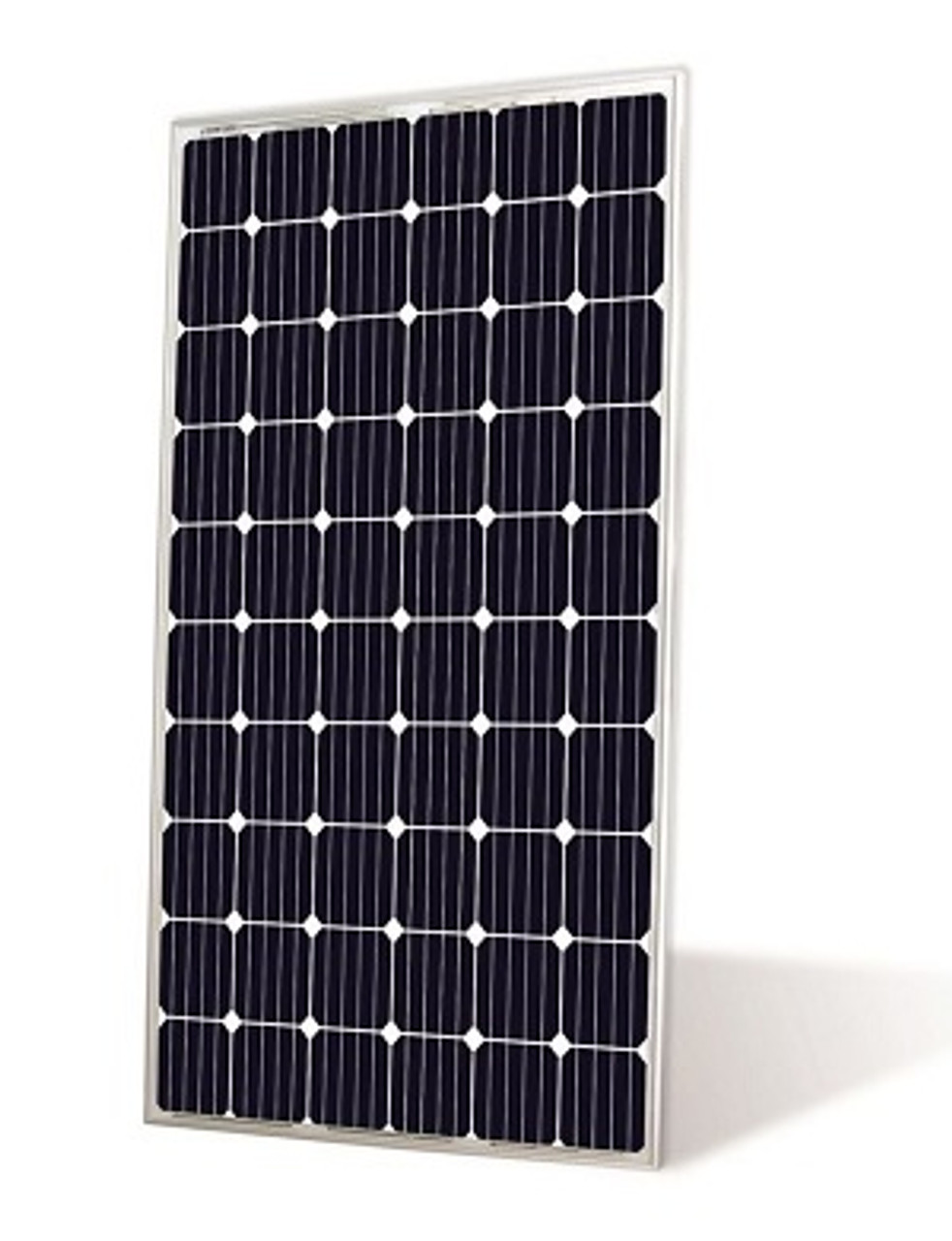The Role of Inverters in Managing Unstable Power Supplies in Nigeria
Inverters have been a game changer in the dynamic landscape of Nigeria's energy sector, the persistent challenge of unstable power supplies has underscored the urgent need for innovative solutions. With frequent blackouts, voltage fluctuations, and an aging power infrastructure, the reliability of the country's power grid remains a critical concern. Amidst this backdrop, the role of inverters emerges as a pivotal force in navigating and mitigating the impacts of unpredictable power scenarios.
Commercial Inverter systems play a crucial role as a power solution for businesses in Nigeria. When power suddenly goes out, leaving homes and businesses in the dark, inverters act as a backup power source. They seamlessly switch on and provide electricity using inverter batteries, ensuring that lights stay on and devices keep working. Additionally, inverters serve as voltage babysitters, regulating the power supply to prevent damage to electronic devices caused by fluctuations. They clean up the electricity, providing a steady and reliable flow that acts as a filter, removing any irregularities. Inverters also come equipped with surge protection, acting like bodyguards for gadgets to shield them from sudden bursts of electricity when power is restored. Furthermore, inverters are quick-change artists, seamlessly transitioning from the main grid to battery power during outages, ensuring a smooth and uninterrupted power supply. Beyond these immediate solutions, inverters contribute to a greener future by supporting the integration of renewable energy sources like solar power. In essence, inverters play a vital role in making power supplies more reliable, stable, and environmentally friendly in Nigeria.
This exploration delves into the significance of inverters as transformative devices, examining their capabilities in providing backup power, regulating voltage, and contributing to a more resilient and stable energy ecosystem in Nigeria. As we unravel the multifaceted dimensions of this technological intervention, it becomes evident that inverters not only address immediate challenges but also offer a pathway toward a sustainable and dependable power future for the nation.
Lento Inverter 2.1KVA/24V
Role of Inverters in Managing Unstable Power Supplies
Inverters are essential devices for power supply systems, as they can supply AC power when the grid fails or goes offline. This is especially important in countries like Nigeria, where the electricity supply is often inadequate and unreliable. Businesses and households across the country face frequent power cuts, voltage variations, and power rationing that disrupt their activities and damage their appliances. To cope with this situation, many people resort to using diesel generators that are loud, costly, and harmful to the environment. This is where inverters come in handy, as they offer a cleaner and more economical power solution. Inverters are not only useful for managing unstable power supplies, but also for integrating renewable energy sources, as they can transform the DC power produced by solar panels or wind turbines into AC power that can be used for domestic and commercial purposes. As a result of that, inverters are perfect for backup power generation. When the grid is working, inverters can charge the batteries using the grid power or the power from solar panels or wind turbines. When the grid fails, inverters can switch to the battery power and supply AC power to the appliances and machines. This way, inverters can ensure a continuous and uninterrupted power supply, even when the grid is down. They are therefore both efficient and eco-friendly. In addition to these benefits, inverters also have several other features that help overcome the challenges posed by unstable power supplies. These include:
- Voltage Regulation: Inverters regulate the voltage of the electricity, safeguarding sensitive electronics from voltage spikes and drops that can cause damage.
- Power Conditioning: Electricity is not always pure, sometimes it contains unwanted noise that can interfere with the quality of the signal. Inverters act as noise filters, removing these electrical distortions and providing a smooth, clear signal.
- Surge Protection: Voltage surges are sudden increases in power that can harm your electronics. Inverters prevent these surges from reaching your devices and ensure a steady flow of electricity.
- Seamless Transition during Power Cuts: The beauty of an inverter lies in its smooth switch when the grid goes down. Without any interruption, it automatically shifts to battery power, ensuring a continuous performance.
Pure Sine wave Inverter 1.6Kva/24V Lento
Understanding Inverters
An inverter is an electronic device that changes direct current (DC) electricity into alternating current (AC) electricity, which is the type of electricity that most appliances and machines use. Inverters are very important for places where the power supply is not stable or continuous. Inverters have many uses in modern society, such as providing power backup, supporting renewable energy systems, and powering electric vehicles. Usually, inverters are connected to a battery bank that stores the electricity that the inverter changes for use during power outages or when electricity from the grid is unavailable.
Types Of Inverters
There are various kinds of power inverters that you can find, and they may have different names or definitions. However, in this article, we will talk about the main ones that you will likely encounter in Nigeria, and we will group them based on their power quality and power availability.
LEMAX GEL Battery LM-GE-12V200AH
A. Power Quality
Power quality refers to how smooth and consistent the electricity that the inverter produces is. There are 3 main types of inverters based on power quality - sine wave (also called “true” or “pure” sine wave), modified sine wave (which is actually a modified square wave), and square wave.
- Pure Sine Wave: A sine wave is the shape of the electricity that you get from your local power company. Pure sine wave inverters give the best performance and are the most suitable type for important applications. They make a smooth and steady electricity that is similar to the electricity that the grid makes. This makes them perfect for running delicate electronics and appliances such as computers, televisions, and medical equipment without harming them or causing interference, making them the first choice for most homeowners.
- Modified Sine Wave: A modified sine wave inverter actually makes electricity that is more like a square wave, but with an extra step or so. A modified sine wave inverter changes DC into AC, but the AC electricity is not a perfect sine wave. These inverters will work well with most devices, but some of them may use more power or work less efficiently.. Some fluorescent lights will not be as bright, and some may make buzzing or humming noises. However, the benefit of modified sine wave inverters over pure sine wave inverters is that they are much cheaper and will work well with most household appliances.
- Square Wave: There are not many, but the cheapest inverters are square wave. They make a simple electricity that changes quickly between high and low levels. A square wave inverter will run basic things like tools with universal motors without a problem, some lights and fans. However, this type of inverter is not common in home solar power systems, as it can make too much heat and harm delicate electronics.
Kan 12v. 220AH Solar Tubular Battery
B. Power Availability
Power availability refers to how long and how often the electricity that the inverter makes is available. There are 3 main types of inverters based on power availability - off grid battery based inverters, grid tie inverters, and hybrid inverters.
- Off Grid Battery Based Inverters: An off grid battery based inverter, also called a stand-alone inverter, uses energy stored in a lead acid or lithium battery to make AC electricity that runs the devices. The low voltage DC batteries energy is inverted into higher voltage AC electricity and can keep your devices working as long as there is energy in the battery system. They can also provide backup power when there is a power cut. Battery based inverters can also have a charging function that lets them charge their batteries with an external AC source like a generator or the grid. This type of inverter is good for homeowners who live in areas where power cuts are common or for those who want to have a dependable backup power source.
- Grid Tie Inverters: A grid tie inverter is made to work with an existing electrical grid. It lets extra energy made by a solar panel system go back into the grid, reducing or removing the need for backup power. Grid tie inverters can use solar modules as the source of DC energy to change and make AC electricity. These inverters don’t use batteries and only make AC power when the sun is shining on the solar modules. They are often used to “sell back” or “back feed” the grid, giving power to a home or business and reducing or removing the need to buy electricity from the power company. This type of inverter is good for homeowners who want to lower their electricity bills and are connected to a steady electrical grid.
- Hybrid Inverters: Recently, hybrid inverters have become more popular and work like an off grid and grid tie inverter in the same box. Hybrid inverters can work like a grid tie only inverter with or without a battery and can also be used completely off grid when there is no grid available. Using a battery lets hybrid inverters store solar energy during the day and then use that energy after dark when energy use might be higher.
AGM Battery Rechargeable VRLA 12V 120AH Lemax
Inverter Technologies and Innovations
Inverters are very important for solar energy systems, so it is not surprising that there is a lot of research and development to make them better and more efficient. In the next sections, we will look at some of the most interesting innovations in how inverters are made and how they function.
- Micro Inverters: Usually, solar energy systems have used one big inverter to change the electricity made by many solar panels. But micro inverters are making this different. These small inverters can be put on each solar panel separately, making a system where each panel can work on its own. The benefits of micro inverters are easy to see. First of all, they let more flexibility in how the system is designed, as panels can be put in many different ways. Also, micro inverters can make more energy by reducing the effect of shade and other things that may make some panels work less well. Lastly, because each panel works on its own, micro inverters also make the system more reliable, as a problem in one panel will not affect the whole system.
- String Inverters: Another improvement in how inverters are made is the use of string inverters. These inverters can deal with the electricity made by many solar panels, but instead of using one big unit, they use many small units that are connected in a line. The main benefit of string inverters is their price. They are usually cheaper than micro inverters, making them a good option for those who want to save money. But there are some drawbacks. For one, string inverters are less flexible in how the system is designed, as panels have to be put in a certain way. Also, if one panel is not working well, it can make the whole string work less well.
How Solar Inverter Technology and Connectivity are Coming Together
WiFi monitoring is a big step in making solar power systems more efficient and easy to use. By using WiFi technology with solar inverters, this improvement lets users see and control their energy making in real-time. The idea of solar inverter WiFi monitoring has many parts and steps. Solar panels take sunlight and make it into electricity, while inverters change the DC electricity made by the panels into AC electricity that can be used at home. A smart monitoring system is connected to the solar inverters, always getting data on how much energy is made, how well the system works, and how it performs overall. The data is sent by WiFi to a main place or the user’s device, letting them see important information about how the solar system works.
Solar Panel (Mono PERC) 390watt Tescom
Challenges and Considerations
Inverters can help you manage unstable power supplies in Nigeria, but they also have some challenges and considerations that you need to think about. In this section, we will talk about some of the main problems that you may face when using inverters in the country.
Initial Costs and Affordability
One of the biggest problems of using inverters in Nigeria is the high initial cost of buying and installing them. The cost can be different depending on the type, size, and quality of the inverter, but it can be from tens of thousands to millions of naira. This can be a big problem for you if you have low income and savings. Also, the cost of batteries, solar panels, and other things can add to the total cost of setting up an inverter system. So, affordability is a major thing that affects your decision to use inverters in Nigeria.
Some ways you can combat this are:
- Compare different types and brands of inverters and look for the ones that suit your needs and budget. You can also look for discounts, promotions, or second-hand options that can lower the price.
- Start small and scale up gradually. You don’t have to buy and install a big and expensive inverter system at once. You can start with a small and affordable one that can power your essential devices and appliances, and then add more as your needs and budget grow.
Inverter Battery 220AH/12V - TT Luminous
Maintenance and Technical Support
Another problem of using inverters in Nigeria is the need for regular maintenance and technical support. Inverters are complex devices that need proper care and service to make sure they work well and last long. But, finding good and reliable technicians and service providers can be hard in some parts of the country, especially in rural and far places. Also, the availability and quality of spare parts and things can also be a problem, as some of them may be hard to find, expensive, or not good. So, maintenance and technical support are important things that affect your use and happiness of inverters in Nigeria.
To ensure this doesn't affect you, make sure you:
- Learn how to use and maintain your inverter properly. You can read the manual, watch online videos, or join online forums that can teach you how to operate and take care of your inverter. You can also ask for advice or help from other users or experts who have experience with inverters.
- Keep your inverter clean and protected. You can dust, wipe, or cover your inverter regularly to prevent dirt, dust, or moisture from damaging it. You can also keep your inverter away from heat, water, or other things that can harm it.
- Have a backup plan in case your inverter breaks down or needs repair. You can have a spare inverter, battery, or generator that you can use in case of emergency. You can also have a list of trusted technicians or service providers that you can call or visit when you need help.
Related Articles
Where to Buy Inverter Battery in Nigeria
Step-by-Step Guide to Installing a Home Inverter System
Conclusion
Inverters are very useful for managing unstable power supplies in Nigeria, as they can provide clean and affordable power from batteries or renewable sources. Inverters can also help reduce the dependence on generators, which are noisy, costly, and harmful to the environment. Inverters have many benefits, such as voltage regulation, power conditioning, surge protection, and seamless transition during power cuts. However, inverters also have some challenges and considerations, such as initial costs and affordability, maintenance and technical support. These challenges and considerations need to be addressed by users, service providers, and other stakeholders to ensure the optimal use and adoption of inverters in the country.
The future landscape of power management in Nigeria is likely to be influenced by the increasing demand for electricity, the growing awareness of environmental issues, and the advancement of technology and innovation. Inverters are expected to play a key role in this future landscape, as they can enable more efficient and sustainable use of energy resources, especially renewable ones. Inverters can also empower users to have more control and choice over their power supply, as well as to save money and improve their quality of life. Therefore, inverters are not only a solution for managing unstable power supplies in Nigeria, but also a catalyst for transforming the power sector and the society at large.














